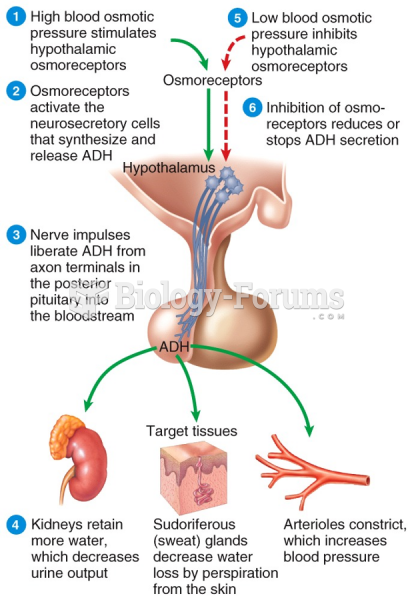This topic contains a solution. Click here to go to the answer
|
|
|
Did you know?
Blood in the urine can be a sign of a kidney stone, glomerulonephritis, or other kidney problems.
Did you know?
All patients with hyperparathyroidism will develop osteoporosis. The parathyroid glands maintain blood calcium within the normal range. All patients with this disease will continue to lose calcium from their bones every day, and there is no way to prevent the development of osteoporosis as a result.
Did you know?
The lipid bilayer is made of phospholipids. They are arranged in a double layer because one of their ends is attracted to water while the other is repelled by water.
Did you know?
By definition, when a medication is administered intravenously, its bioavailability is 100%.
Did you know?
The average human gut is home to perhaps 500 to 1,000 different species of bacteria.
 To examine a child’s ear, the pinna should be pulled back and up for children over 3 years; the pinn
To examine a child’s ear, the pinna should be pulled back and up for children over 3 years; the pinn
 Acromegaly. Acromegaly is a metabolic disorder in which excessive amounts of growth hormone are secr
Acromegaly. Acromegaly is a metabolic disorder in which excessive amounts of growth hormone are secr
 These tree-sitters are being forcibly removed. They were protesting the environmental damage that ...
These tree-sitters are being forcibly removed. They were protesting the environmental damage that ...
 (a) Multiple myeloma: Tumor of plasma cells. (b) Myeloma cells grow within the bone and lesions can ...
(a) Multiple myeloma: Tumor of plasma cells. (b) Myeloma cells grow within the bone and lesions can ...



